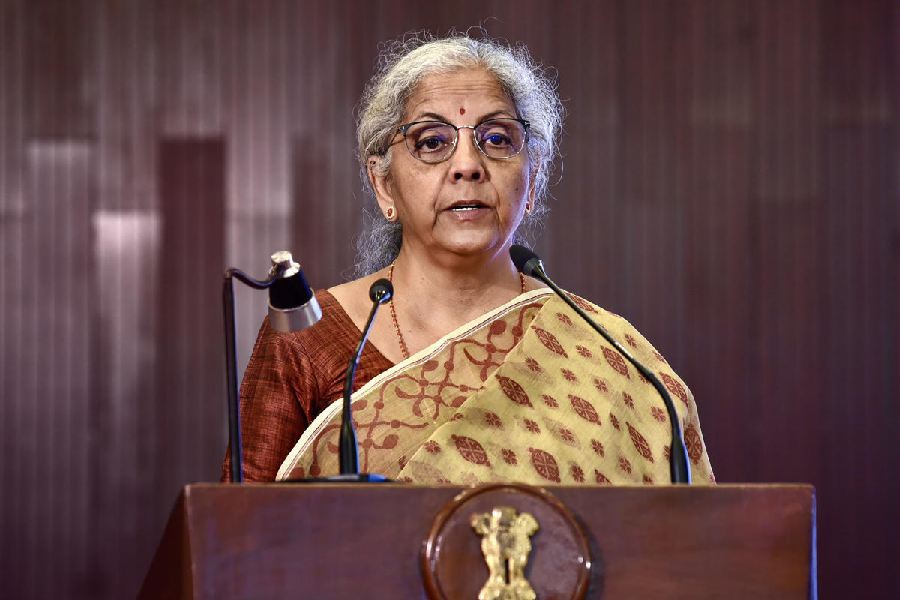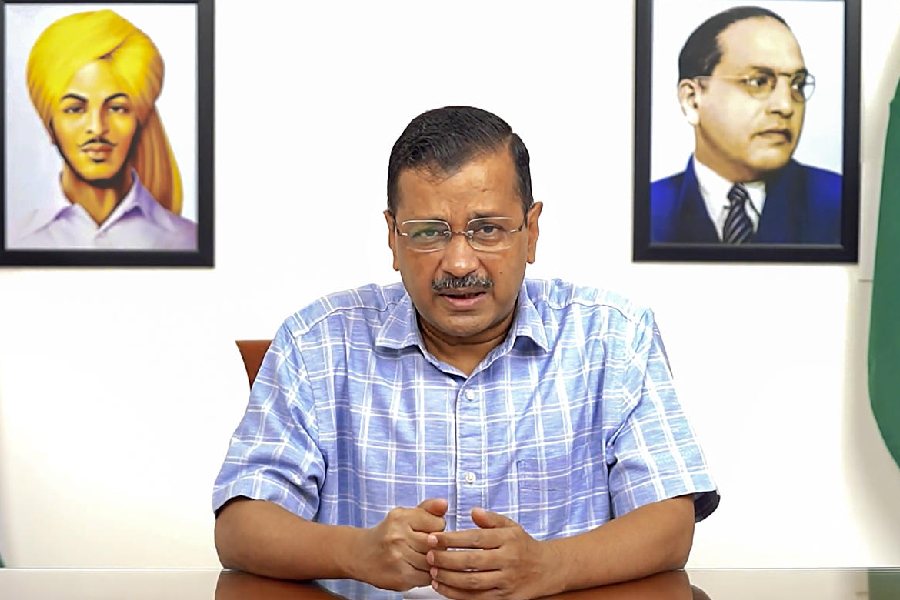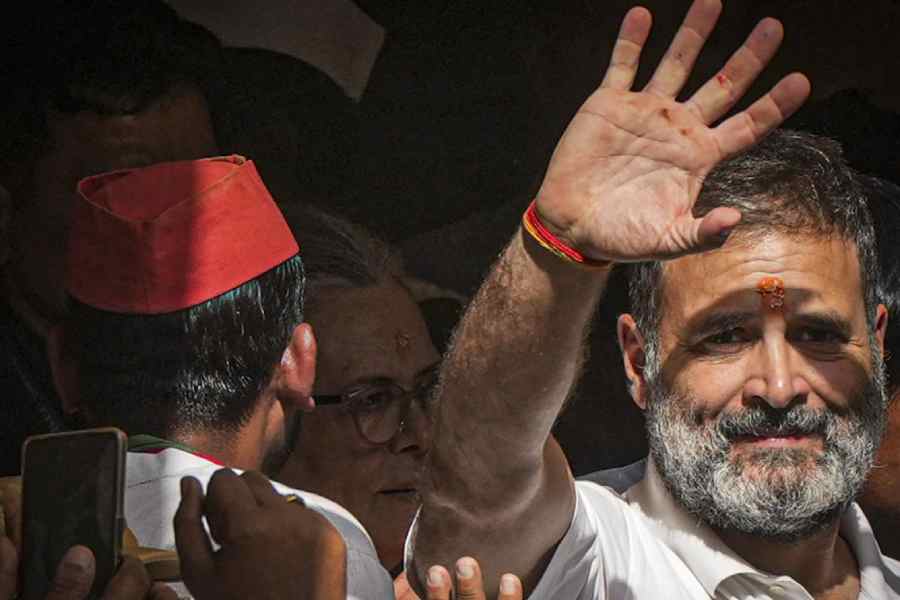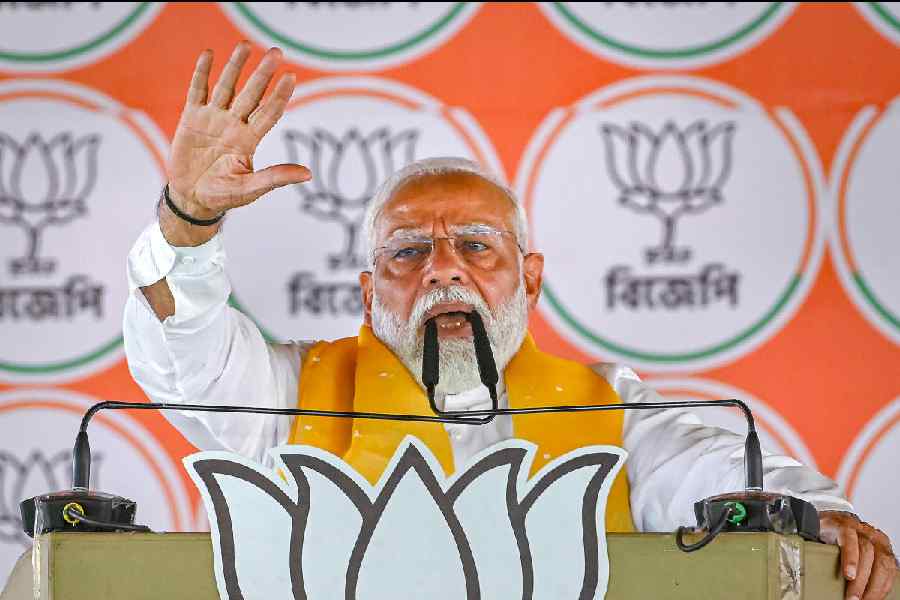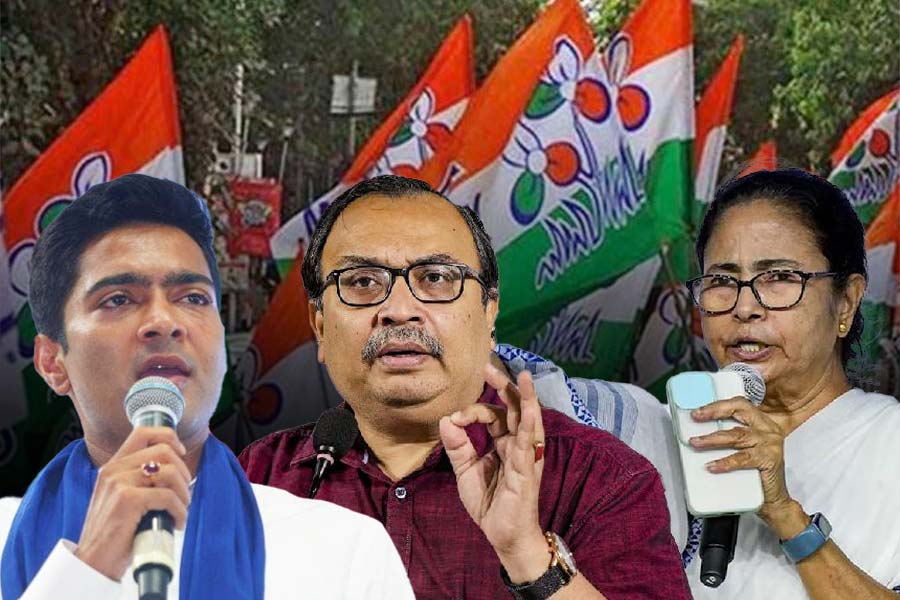The interim budget on February 1 will focus on the fiscal glide path as finance minister Nirmala Sitharaman looks to stay away from big-bang announcements, economists said.
The post Covid-19 fiscal consolidation road map of the government estimates the fiscal deficit at 5.2 per cent of GDP in 2024-25 and 4.5 per cent of GDP by 2025-26 from the budgeted 5.9 per cent this year.
The victory in the recent assembly polls has given the Modi government the confidence of a hat-trick in the 2024 general elections.
Besides, the big-ticket decision to extend the free foodgrain scheme for five years is aimed at reaping political benefits in the parliamentary polls.
Analysts also pointed out to the fact the ruling BJP is focusing on a direct connection with the beneficiaries of different government schemes such as income support to farmers and cheap LPG to hammer the point that it keeps its promise to the poor.
Finance minister Nirmala Sitharaman displayed the confidence with her recent announcement that the budget will be a vote on account with no spectacular announcements.
A vote on account is permission from Parliament for incurring certain expenditures till a new government takes office.
In the past, governments have refrained from making any major policy announcement in the vote on account, but there is no constitutional bar on this count.
“The 2024-25 budget, although an interim one, will be very important as a road map for continuing plans of further structural reforms, capital expenditure of the Centre and states and a host of other social sector initiatives for sustained, inclusive growth.”
“The government’s fiscal discipline and focus on capex spending has been a key reason for increasing investor confidence in India. We expect that the budget fiscal deficit will be brought down further to around 5.4 per cent of GDP or lower,” Saugata Bhattacharya, independent economist said.
India is on track to reach $4 trillion GDP by mid-2024 and cross Germany and Japan over the next two years.
The economic momentum is strong and private sector capex expected to pick up in 2024-25.
“However, strong demand, which has been a driver for India’s outperformance in 2023-24, remains a risk to persisting core inflation, and fiscal measures will need to coordinate with monetary policy to maintain a favourable balance between growth and inflation,” he said.
According to the latest advanced estimates, the Indian economy is likely to grow at 7.3 per cent 2023-24, higher than several estimates including the RBI.
Deficit watch
The finance ministry’s initial assumption for 2023-24’s nominal GDP growth was 10.5 per cent. However, the statistics ministry’s early projection suggests a potential 8.9 per cent GDP growth in nominal terms.
“Taking into account the first advanced estimates of GDP, if tax receipts grew by the BE (bugdet estimates), the government may have to curtail spending by Rs 37,178 crore without changing the fiscal deficit target of 5.9 per cent of GDP in 2023-24,” the SBI Ecowrap report said.
“For 2024-25, strong economy and buoyant tax revenues will let the government reduce fiscal deficit by 40-50 bps from the current fiscal to 5.4-5.5 per cent of GDP, the report said.
N.R. Bhanumurthy, vice-chancellor of B.R. Ambedkar School of Economics, said “the revenue buoyancy would help the government meet the fiscal deficit target in 2023-24 and the government is unlikely to cut its expenditure during the remaining months of this fiscal. The interim budget is likely to be a muted affair”.
Partha Chatterjee of Shiv Nadar University said: “Fiscal policies tend to be countercyclical, i.e., fiscal deficits fall when the economy is doing well and vice versa. Since the Indian economy is on a growth path, the trend growth being higher than the trend over the last decade, it is likely that the government will be able to meet the fiscal targets.”
However, with the elections a few months away, the situation may become complicated: the government might want to allocate more funds to several central government schemes or even announce some new ones.

